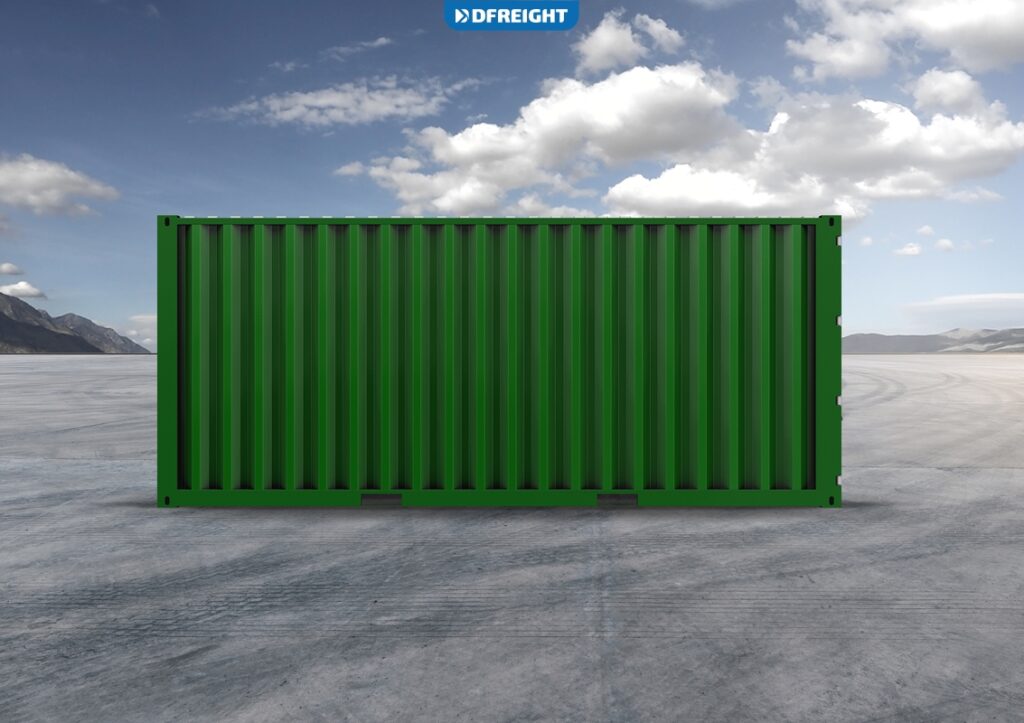As the global shipping industry continues to grow, so does its impact on the environment. With climate change becoming an increasingly urgent issue, companies in the shipping industry must take action to reduce their environmental footprint. This blog post will provide practical green shipping advice on how companies involved in shipping can reduce their environmental impacts and contribute to a more sustainable future.
Are you looking for an efficient way to reduce your environmental impact? With DFreight, you can take your shipping business green. Get a free quote today and take the first step towards a more sustainable future.
Table of Contents
What Is Green Shipping?
Green Shipping is an environmental term used to describe the process of moving goods and services in a manner that is both efficient and has a minimal negative impact on the environment. This includes the use of green transportation methods such as rail, ships, trucks, and buses. Additionally, it encompasses the use of alternative fuel sources and sustainable materials for packing and shipping.
The primary goal of green shipping is to reduce the amount of carbon pollution released into the atmosphere, as well as other pollutants. This is done by using more efficient, clean, and renewable energy sources for transportation. In addition, green shipping aims to reduce the amount of waste generated from the transportation of goods. This is done through the adoption of green packaging methods, such as utilizing recyclable materials and avoiding unnecessary packaging.
Technological advancements in the shipping industry have enabled the use of green transportation methods. For example, the use of hybrid vehicles and electric-powered ships can reduce fuel emissions, while the use of solar power can reduce the reliance on fossil fuels. Additionally, the use of container ships and intermodal transportation helps to minimize environmental impact by consolidated shipping, reducing the number of emissions produced.
Green shipping also includes efforts to reduce the amount of waste produced during the shipping process. This includes the use of recyclable and reusable materials for packing, reducing the amount of packaging used, and avoiding single-use packaging. Additionally, the use of tracking and monitoring systems can help to identify the most efficient routes for shipments in order to reduce the amount of fuel used and emissions produced.
Overall, green shipping is a process that seeks to reduce the negative environmental impacts associated with the transportation of goods and services. This is done through the adoption of green transportation methods and the use of efficient, clean, and renewable energy sources. Additionally, green shipping involves efforts to reduce the amount of waste generated through packaging and tracking systems. Through these steps, green shipping can help to promote a more sustainable and environmentally-friendly transportation system.
Reducing Fuel Consumption
Reducing fuel consumption is one of the most critical steps for companies involved in shipping to take in order to reduce their environmental impact. There are a variety of ways to reduce fuel consumption, from upgrading to more fuel-efficient vehicles to implementing better route planning and optimizing fleet management. Companies can also reduce fuel consumption by utilizing alternative fuel sources, such as biodiesel, natural gas, and electricity. By making the switch to one of these more sustainable fuels, companies can reduce their carbon dioxide emissions and help protect the environment.
Improving Efficiency
Improving efficiency is another key factor in reducing the environmental impact of shipping. This can be achieved through a variety of methods, including streamlining operations, optimizing cargo and fleet management, and utilizing digital technologies such as GPS tracking and route optimization software. Reducing operational costs can also be beneficial, as these savings can be reinvested into more sustainable practices. Companies can also take advantage of incentives and subsidies offered by governments to help offset the costs of green initiatives. These measures will help ensure that shipping operations are as efficient as possible and reduce their environmental impact.
Optimizing Cargo and Fleet Management
Optimizing cargo and fleet management is an important part of reducing the environmental impact of shipping. Companies can make their fleets more efficient by utilizing GPS tracking to monitor routes and optimize delivery times and implementing route planning software to minimize fuel consumption. Additionally, companies can reduce their environmental impacts by switching to more sustainable forms of transport, such as rail, intermodal, and short-sea shipping, and utilizing more efficient loading and unloading methods. By optimizing their cargo and fleet management, companies can ensure that their shipping operations are as efficient as possible and reduce their environmental impacts.

Reusing and Recycling Materials
Reusing and recycling materials is another important part of reducing the environmental impact of shipping. By reusing and recycling materials, companies can reduce their carbon dioxide emissions and save money. Companies can reuse packaging materials, such as bubble wrap and cardboard boxes, and can also recycle plastics, metals, and other materials. Additionally, companies can look for ways to reduce their waste, such as utilizing reusable containers and pallets. By reusing and recycling materials, companies can reduce their environmental footprint and help protect the environment.
Utilizing Renewable Energy
Utilizing renewable energy is another important way that companies involved in shipping can reduce their environmental impacts. Renewable energy sources, such as solar, wind, and hydropower, can be used to power ships, ports, and storage facilities, as well as to generate electricity for operations. Companies can also look for ways to reduce their energy consumption, such as utilizing energy-efficient lighting and insulation and taking advantage of incentives and subsidies offered by governments to help offset the costs of green initiatives. By utilizing renewable energy, companies can reduce their environmental impact and help create a more sustainable future.
To Conclude Green Shipping Advice
In conclusion, companies involved in shipping must take action to reduce their environmental impacts and contribute to a more sustainable future. From reducing fuel consumption to utilizing renewable energy, this post has provided top green shipping advice to help save the environment. With the right strategies and technologies, companies can ensure that their shipping operations are as efficient as possible and reduce their environmental impacts.
What is Green Shipping?
Green shipping is the practice of reducing the environmental impact of shipping operations and cargo transportation. This includes reducing fuel consumption and emissions, improving efficiency and safety, and using more sustainable materials and practices.
What are the benefits of Green Shipping?
The benefits of green shipping include reduced fuel costs, improved environmental protection, improved safety, and increased efficiency.
What are the main methods for reducing emissions in Green Shipping?
The main methods for reducing emissions in green shipping include optimizing vessel speed and route, improving vessel design and operation, and using alternative fuels and propulsion systems.













